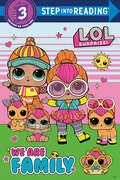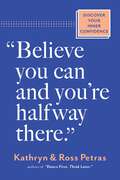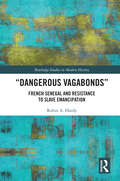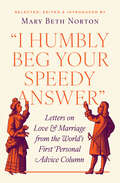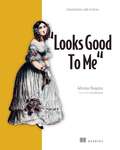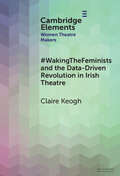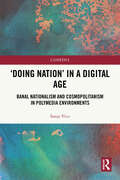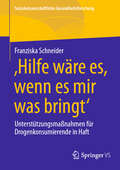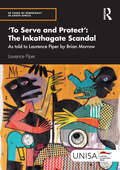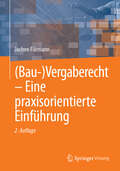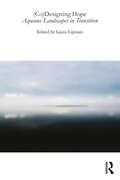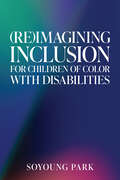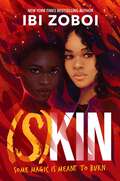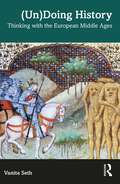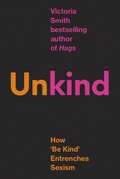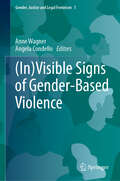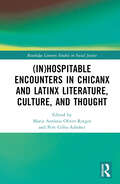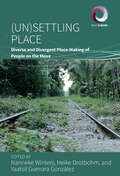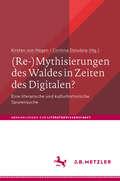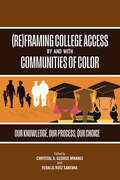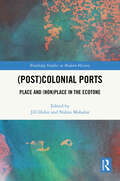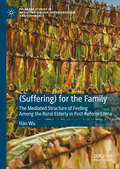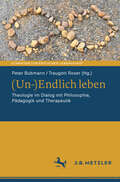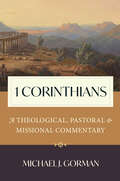- Table View
- List View
We Are Family (Step into Reading)
by Random HouseMeet all your favorite L.O.L. Surprise! families in this a Step 3 Step into Reading reader!Meet all of your favorite L.O.L. Surprise! families in this Step 3 Step into Reading leveled reader which is perfect for children ages 5 to 8. Step 3 readers feature engaging characters in easy-to-follow plots about popular topics. For children who are ready to read on their own. In a world where babies run everything, little Rockers rebel against nap time and Teacher's Pets become class presidents with "Free Pizza Fridays!" In the L.O.L. Surprise! world, all work is play and nothing is dull cuz it's all a lil' surprising and outrageous! Step 3 Readers feature engaging characters in easy-to-follow plots about popular topics. For children who are ready to read on their own.
"Believe You Can and You're Halfway There": Discover Your Inner Confidence
by Ross Petras Kathryn PetrasA compilation of musings to motivate and inspire readers in need of a quick pick-me-up. We all want to be the person who marches into a meeting brimming with self-confidence, unbothered by what others think of them right before making a killer speech. But all too often, crippling self-doubt creeps in. This book is a self-esteem boosting collection of pocket-sized pep talks from successful people in a multitude of fields, including Serena Williams, Stephen King, Helen Keller, Julia Child, and so much more—that will give readers a strong dose of self-assurance. &“I am lucky that whatever fear I have inside me, my desire to win is always stronger.&” —Serena Williams &“The scariest moment is always just before you start.&” —Stephen King &“Optimism is the faith that leads to achievement. Nothing can be done without hope and confidence.&” —Helen Keller &“Just speak very loudly and quickly, and state your position with utter conviction, as the French do, and you&’ll have a marvelous time!&” —Julia Child
"Dangerous Vagabonds": French Senegal and Resistance to Slave Emancipation (Routledge Studies in Modern History)
by Robin A. Hardy"Dangerous Vagabonds" examines the problem of illicit slavery in Senegal following the 1848 emancipation law. Where traditional scholarship relates its persistence to the economic and logistic pressures in the region, as well as a strong indigenous tradition of forced labor, this study goes further to show that inherent factors within the culture of French colonialism made abolishing the institution exceedingly difficult.In 1848, when slavery was abolished across greater France, the practice remained virtually intact in the French colony of Senegal on the west coast of Africa. Slavery would continue to be practiced in the colony and its expanding borderlands until at least 1905, when this study ends. This work takes a multi-faceted approach by examining three aspects of French imperial culture that mitigated slave freedom in Senegal: the views of race and slavery maintained by Senegal’s influential métis (mixed-race) population; French ethnological assessments of the aptitude and capabilities of black West Africans; and related, a trend within French political culture to deny metropolitan rights to the non-white colonized—a phenomenon that intensified in far-flung French territories that were not completely under French control, and where few whites resided.In complexifying post-colonial literature of West Africa, this study will be a useful resource to students and scholars of the history of slavery, colonial history, and West African studies.
"I Humbly Beg Your Speedy Answer": Letters on Love and Marriage from the World’s First Personal Advice Column
by Mary Beth NortonA fascinating collection of questions and answers—about courtship, marriage, love, and sex—from a seventeenth-century periodical The Athenian Mercury—a one-page, two-sided periodical published in 1690s London—included the world&’s first personal advice column. Acclaimed historian and Pulitzer Prize–finalist Mary Beth Norton&’s &“I Humbly Beg Your Speedy Answer&” is a remarkable collection of questions and answers drawn from this groundbreaking publication.In these exchanges, anonymous readers look for help with their most intimate romantic problems—about courting, picking a spouse, getting married, securing or avoiding parental consent, engaging in premarital sex and extramarital affairs, and much more. Spouses ask how to handle contentious marriages and tense relationships with in-laws. Some correspondents seek ways to ease a conscience troubled by romantic and sexual misbehavior. The lonely wonder how to meet a potential partner—or how to spark a warmer relationship with someone they already have an eye on. And both men and women inquire about how to extract themselves from relationships turned sour. Many of these concerns will be familiar to readers of today&’s advice columns. But others are delightfully strange and surprising, reflecting forgotten social and romantic customs and using charmingly unfamiliar language in which, for example, &“kissing is a luscious diet,&” a marriage might provide &“much love and moderate conveniency,&” and an &“amorous disposition&” can lead to trouble.Delightful and entertaining, &“I Humbly Beg Your Speedy Answer&” provides a unique, intriguing, and revealing picture of what has—and hasn&’t—changed over the past three centuries when it comes to love, sex, and relationships.
"Looks Good to Me": Constructive code reviews
by Adrienne BraganzaDeliver code reviews that consistently build up your team and improve your applications.&“Looks Good to Me&” offers a unique approach to delivering meaningful code reviews that goes beyond superficial checklists and tense critical conversations. Instead, you&’ll learn how to improve both your applications and your team dynamics. &“Looks Good to Me&” teaches you how to: • Understand a code review's benefits proactively prevent loopholes and bottlenecks • Co-create an objective code review system • Clarify responsibilities: author, reviewer, team lead/manager, and the team itself • Establish manageable guidelines and protocols • Align with your team and explicitly document the policies they will follow • Automate code quality with linting, formatting, static analysis, and automated testing • Compose effective comments for any situation • Consider combining code reviews with pair programming or mob programming • AI for code reviews Inside &“Looks Good to Me&” you&’ll find comprehensive coverage of every part of the code review process, from choosing a system to keeping reviews manageable for everyone involved. With this mix of tools, processes, common sense, and compassion, you&’ll run a highly effective review process from first commit to final deployment. Foreword by Scott Hanselman. About the technology Transform code reviews into the positive, productive experiences they&’re meant to be! Whether it&’s your code under the microscope or you&’re the one giving the feedback, this sensible guide will help you avoid the tense debates, fruitless nitpicking, and unnecessary bottlenecks you&’ve come to expect from code reviews. About the book &“Looks Good to Me&” teaches the considerate, common sense approach to code reviews pioneered by author Adrienne Braganza. You&’ll learn how to create a cohesive team environment, align review goals and expectations clearly, and be prepared for any changes or obstacles you may face. Along the way, you&’ll master practices that adapt to how your team does things, with multiple options and solutions, relatable scenarios, and personal tidbits. You&’ll soon be running highly effective reviews that make your code—and your team—stronger. What's inside • Why we do code reviews • Automate processes for code quality • Write effective comments About the reader For any team member, from developer to lead. About the author Adrienne Braganza is an engineer, speaker, instructor, and author of the bestselling book Coding for Kids: Python. Table of Contents Part 1 1 The significance of code reviews 2 Dissecting the code review 3 Building your team&’s first code review process Part 2 4 The Team Working Agreement 5 The advantages of automation 6 Composing effective code review comments Part 3 7 How code reviews can suck 8 Decreasing code review delays 9 Eliminating process loopholes 10 The Emergency Playbook Part 4 11 Code reviews and pair programming 12 Code reviews and mob programming 13 Code reviews and AI A Team Working Agreement starter template B Emergency Playbook starter template C PR templates D List of resources
#WakingTheFeminists and the Data-Driven Revolution in Irish Theatre (Elements in Women Theatre Makers)
by Claire Keogh#WakingTheFeminists was a year-long grassroots campaign for gender equality in Irish theatre. Prompted by the gender disparity of Ireland's Abbey Theatre's 2016 programme, 'Waking the Nation', Lian Bell posted a Facebook message that sparked a surge of feminist fury that ignited the #WakingTheFeminists movement. This Element considers the movement both as digital feminist activism and as part of the growing trend of data feminism, by analysing how its combined use of connective and collective action, and qualitative and quantitative data, was critical to its success. It contextualises the movement historically in relation to a series of feminist controversies in Irish theatre since 1990, before considering its impact on both policy and cultural changes across the Irish arts sector. #WakingTheFeminists' national and international resonance derived from its research-informed strategy which made it the most effective campaign for gender equality in the history of Irish theatre.
'Doing Nation' in a Digital Age: Banal Nationalism and Cosmopolitanism in Polymedia Environments (Comedia)
by Sanja VicoThis book introduces a new theory of national identity, arguing that the nation does not only represent an abstract “imagined community” but also represents embodied cultural and discursive practices.Drawing upon a detailed case study of Serbian Londoners, this truly interdisciplinary study positions media as constitutive of national identities. The author contends that nations come into being and are sustained through everyday interpersonal communication practices that have increasingly become mediated, especially for migrants. She develops the concept of "doing nation" to argue that we should think of the nation as a dynamic process. Situated first within a particular migration context, the concept is then applied more broadly as everyday communication practices are becoming increasingly mediated worldwide.Covering a breadth of key theories and concepts in this field, including diaspora, ethnicity, nationalism, cosmopolitanism, social media affordances and polymedia, this book will appeal to scholars and students researching digital media, migration, identities, nationalism and cosmopolitanism in the social science disciplines.
'Hilfe wäre es, wenn es mir was bringt': Unterstützungsmaßnahmen für Drogenkonsumierende in Haft (Sozialwissenschaftliche Gesundheitsforschung)
by Franziska SchneiderDieses Buch bietet einerseits Handlungsempfehlungen zur Verbesserung der Situation drogenkonsumierender Inhaftierter und des Allgemeinen Vollzugsdienstes und andererseits einen Zukunftsausblick für zukünftige Haftanstalten, mit diesem Themenbereich besser umgehen zu können. Das Spannungsfeld zwischen Strafe und Hilfe resultiert aus der Diskrepanz zwischen der strikten Vorgabe, dass eine JVA ein drogenfreier Raum sein sollte, und der Tatsache, dass dies derzeit nicht als gegeben angesehen werden kann. Diesem Umstand kann auf zweierlei Art Rechnung getragen werden: Einerseits kann man versuchen, den Konsum von illegalen Drogen durch strenge Kontrollen einzuschränken und ihn zu bestrafen, anderseits kann man aber auch Hilfsmaßnahmen für Konsumierende anbieten. Folglich stellt sich die Frage, wie Inhaftierte und Angehörige des AVD mit diesem Widerspruch umgehen. Auch ist bisher nicht geklärt, inwieweit Inhaftierte Hilfsmaßnahmen, beispielsweise aus Angst vor möglichen Konsequenzen durch das Bekanntwerden des Konsums illegaler Substanzen, nicht in Anspruch nehmen. Ebenso soll in diesem Rahmen das Interesse drogenkonsumierender Inhaftierter an Hilfsangeboten sowie ihre Beweggründe für oder gegen eine Teilnahme an Maßnahmen herausgearbeitet werden. Ziel des Projektes war es, das Spannungsfeld zwischen Strafe und Hilfe in der intramuralen Gesundheitsfürsorge im deutschen Justizvollzug zu erforschen. Hierbei wurde vor allem der Konsum illegaler Substanzen in einer deutschen JVA durch die Analyse von Gesprächen mit Inhaftierten und Angehörigen des AVD in den Fokus gerückt. Substanzkonsum in Haft geht häufig sowohl mit Repression als auch mit dem Angebot von Hilfsmaßnahmen einher. Die sozialen Gruppen, die von diesem Spannungsfeld besonders betroffen sind, wurden in dieser Arbeit eingehend betrachtet. Besonders relevant ist dieses Buch sowohl für die Mitarbeitenden des Vollzugs selbst, die dadurch einen reflektierten Blick auf ihre Aufgaben und die an sie gestellten Erwartungen erhalten als auch für Politik und Öffentlichkeit: Es zeigt sich, wie groß das Spannungsfeld zwischen Strafe und Hilfe bei Drogenkonsum in Haft ist und welche Möglichkeiten es gibt, diese Kluft zu überwinden und drogenkonsumierenden Inhaftierten aber auch den Mitarbeitenden einen guten Umgang damit zu ermöglichen.
'To Serve and Protect': As told to Laurence Piper by Brian Morrow (30 Years of Democracy in South Africa)
by Laurence PiperThis book provides a detailed account of the history, consequences, and events leading up to the ‘Inkathagate Scandal’ which changed the course of South African history. It states that Inkathagate was the work of one man – Brian Morrow – who outraged by the racism, corruption and torture rife in the Security Branch of the South African Police in Durban where he worked, resolved to do something to expose the reality of apartheid hidden from white South Africa and the world. It also discusses the Inkatha files, which Morrow had covertly copied and handed to the media in 1991, and also analyses Morrow’s purpose, ambitions, and what followed after.Print editions not for sale in Sub-Saharan Africa. This book is part of Routledge’s co-published series 30 Years of Democracy in South Africa, in collaboration with UNISA Press, which reflects on the past years of a democratic South Africa and assesses the future opportunities and challenges.
(Bau-)Vergaberecht – Eine praxisorientierte Einführung
by Jochen FürmannDieses Fachbuch liefert einen eng an die Bedürfnisse der Praxis orientierten Ein- und Überblick zum weiten Feld des Bau-Vergaberechts. Mit wesentlichen Basisinformationen speziell für den Bauvergabebereich sollen insbesondere Nicht-Juristen einen leichten Einstieg in die Materie erhalten. Das Buch stellt dar wer, warum, was wie ausschreiben muss. Dabei werden auch die haushaltsrechtlichen Vorgaben, die Rechtsschutzmöglichkeiten, die weiteren vergaberechtlich relevanten Fragen während der Bauabwicklung und die übrigen Vergabevorschriften angesprochen. In der 2. Auflage werden die Schwellenwerte und Statistiken aktualisiert. Zudem werden nun auch die Wertgrenzen im Unterschwellenbereich sowie die eForms-Vorschriften umfassend dargestellt.
(Co)Designing Hope: Aqueous Landscapes in Transition
by Laura CiprianiExtreme weather events, droughts, floods, shifts in precipitation and temperature patterns, melting glaciers, sea-level rise, water salinization, and more generally, changes in the water cycle remind us that the climate crisis is mostly a water crisis. Perhaps even more serious is a crisis of imagination connected with thought and with creative, far-sighted action able to combine the visionary and the pragmatic. A response to these two crises can be provided by the disciplines of landscape architecture: these have always featured a plural, collective approach that comprises or originates from living systems and natural forces, on the involvement of human and nonhuman communities in the design process, and the inclusion of the time variable in future plans—without neglecting the necessary flexibility of creative and pragmatic thinking. How can landscape design and different forms of collaboration open new doors to face climate and water challenges? What hopes can spring from collective design in its broader meaning?This book sets out notions and ideas on water landscapes and (co)designed practices, identifying what hopeful routes might be taken for the three states of aqueous landscapes in transition—liquid, solid, and gas. The chapters show different scales and levels of design and collaborative practices: from large and governmental projects to small bottom-up interventions; from creative collaboration among designers to traditional community design; from participatory processes to nature as a co-designer for tackling the climate crisis. People, animals, plants, water, ice, fog, clouds, wind, sand, and rocks—all contribute to the cosmos’ landscape symphony, and designing together can become a seed of hope to listen and embrace the Earth’s climate changes.
(Re)Imagining Inclusion for Children of Color with Disabilities
by Soyoung ParkA transformative vision to shift educator practice and make systemic changes that can advance educational inclusion of students of color with disabilities
(S)Kin
by Ibi ZoboiSIX STARRED REVIEWS!A Junior Library Guild Gold Standard Selection!From award-winning, New York Times bestselling author Ibi Zoboi comes her groundbreaking contemporary fantasy debut—a novel in verse based on Caribbean folklore—about the power of inherited magic and the price we must pay to live the life we yearn for.“Our new home with itsthick walls and locked doorswants me to stay trapped in my skin—but I am fury and flame.”Fifteen-year-old Marisol is the daughter of a soucouyant. Every new moon, she sheds her skin like the many women before her, shifting into a fireball witch who must fly into the night and slowly sip from the lives of others to sustain her own. But Brooklyn is no place for fireball witches with all its bright lights, shut windows, and bolt-locked doors.… While Marisol hoped they would leave their old traditions behind when they emigrated from the islands, she knows this will never happen while she remains ensnared by the one person who keeps her chained to her magical past—her mother.Seventeen-year-old Genevieve is the daughter of a college professor and a newly minted older half sister of twins. Her worsening skin condition and the babies’ constant wailing keep her up at night, when she stares at the dark sky with a deep longing to inhale it all. She hopes to quench the hunger that gnaws at her, one that seems to reach for some memory of her estranged mother. When a new nanny arrives to help with the twins, a family secret connecting her to Marisol is revealed, and Gen begins to find answers to questions she hasn’t even thought to ask.But the girls soon discover that the very skin keeping their flames locked beneath the surface may be more explosive to the relationships around them than any ancient magic.
(Un)Doing History: Thinking with the European Middle Ages
by Vanita SethAgainst the grain of much contemporary scholarship within medieval studies, this work emphasizes the radical alterity and historical rupture that the Middle Ages represents in European history.Through an engagement with three contentious debates in medieval studies – historiography, race and individuated subjectivity – Vanita Seth’s work employs postcolonial and postmodern theorizing to explore questions of ontology, epistemology, facial privileging, and emotion and identity in the European Middle Ages and early modern period. While the subject matter of this book is historical, the stakes are contemporary and political. Seth’s contention is that it is the very alterity that the medieval represents that enables contemporary scholars and activists to recognize as historical that which is so often posited as ‘natural.’ Writing a history of absence while also engaging radically different ways of being in the world, this book argues, helps to disrupt the self-evident naturalization of the face, to contest knee-jerk celebrations of individuality tethered to the human visage, and to recognize racism not as an age-old nemesis but as a distinctly modern form of organizing power.This work is interdisciplinary, engaging scholarship in science studies, philosophy, feminist theory, anthropology, race studies and literature, and postmodernand postcolonial theory. It presumes no prior specialized knowledge in medieval studies and/or history. This book is an essential reading for scholars and students in the fields of medieval and early modern history, race, historiography, identity and emotion studies.
(Un)kind: How 'Be Kind' Entrenches Sexism
by Victoria Smith'Victoria Smith is a brilliant writer who every feminist should read' Sharron Davies'Erudite, blisteringly smart and profoundly compassionate... A must-read for anyone hungry to understand the origins and dangers of contemporary exhortations to women to #BeKind, and for everyone who wants to live a feminist life' Dr Rachel HewittA brilliantly witty and insightful analysis of how kindness culture is used against women. Using the #JustBeKind trend of the 2020s as a starting point, (Un)kind explores how traditional beliefs about women's 'kind' nature have been repackaged for an age that remains dependent - socially, politically, economically - on female self-sacrifice while finding the concept outdated and essentialist. Looking at the various guises under which kindness culture is sold to women and girls - from play to self-help, social justice activism to empowerment - Victoria Smith argues that the pressure on women and girls has not decreased, but instead been incorporated into the 'work' of feminism. (Un)kind analyses the way in which this phenomenon ultimately distorts relationships, harming not just those coerced into performing 'kindness work' but the supposed recipients of their services.Kindness culture supports the backlash against feminism while claiming to represent feminism's - and women's - true nature. It is, at heart, unkind.PRAISE FOR HAGS'The greatest joy of Hags is its lively erudition . . . eloquent, clever and devastating' The Times 'A book that could not be more necessary' Observer 'Brilliantly witty, engaging and insightful' Scotsman
(Un)kind: How 'Be Kind' Entrenches Sexism
by Victoria Smith'Victoria Smith is a brilliant writer who every feminist should read' Sharron Davies'Erudite, blisteringly smart and profoundly compassionate... A must-read for anyone hungry to understand the origins and dangers of contemporary exhortations to women to #BeKind, and for everyone who wants to live a feminist life' Dr Rachel HewittA brilliantly witty and insightful analysis of how kindness culture is used against women. Using the #JustBeKind trend of the 2020s as a starting point, (Un)kind explores how traditional beliefs about women's 'kind' nature have been repackaged for an age that remains dependent - socially, politically, economically - on female self-sacrifice while finding the concept outdated and essentialist. Looking at the various guises under which kindness culture is sold to women and girls - from play to self-help, social justice activism to empowerment - Victoria Smith argues that the pressure on women and girls has not decreased, but instead been incorporated into the 'work' of feminism. (Un)kind analyses the way in which this phenomenon ultimately distorts relationships, harming not just those coerced into performing 'kindness work' but the supposed recipients of their services.Kindness culture supports the backlash against feminism while claiming to represent feminism's - and women's - true nature. It is, at heart, unkind.PRAISE FOR HAGS'The greatest joy of Hags is its lively erudition . . . eloquent, clever and devastating' The Times 'A book that could not be more necessary' Observer 'Brilliantly witty, engaging and insightful' Scotsman
**Missing** (Gender, Justice and Legal Feminism #1)
by Anne Wagner Angela CondelloThe edited volume explores the causes, forms, and cultures of gender-based violence in society, including how children are educated, how games, art and even language promote differences, stereotypes, neutrality between men and women. It is a place to reflect on the growing importance of tolerance, diversity and acceptance of others. The book focuses on many facets, whether in a confined or public space, with a series of empirical and theoretical chapters from around the world. The volume provides key contemporary commentary on the changing dynamics of gender-based violence. It unveils a range of contexts and spaces in which gender-based violence happens, showcasing its scale and impact worldwide. The discussions presented in the book encourage a critical reflection on the global pandemic of gender-based violence, prompting a vital question about the sufficiency and effectiveness of responses to this global crisis (Professor Olga Jurasz, The Open University Law School).
**Missing** (Routledge Literary Studies in Social Justice)
by Maria Antònia Oliver-Rotger and Pere Gifra-AdroherThis volume addresses the notion of (in)hospitality in the culture, literature, and thought of Chicanx and Latinx in the United States. It underscores those “stranger others” against whom nativist fear and state violence are directed: undocumented migrants, refugees, and asylum seekers. Critical analyses focus on the topics of immigration and state violence, hospitality in written and visual narratives, and the role of hospitality in the translation of academic and literary works. All essays explore the conditional character of hospitality towards Chicanx and Latinx and its attending myths and discourses. Dwelling on the predicament that individuals and groups face as strangers, unwelcome guests, and unwilling hosts, the essays also explore the ways in which Chicanx and Latinx writers, artists, and filmmakers may or may not challenge the guest-host relationship. The ethical concern that runs through the volume considers material history and the institutional, disciplinary regulation of the uncertainty of hospitality acts as factors determining the narratives about foreign others.
**Missing**: Diverse and Divergent Place-Making of People on the Move (Worlds in Motion #14)
by Nanneke Winters, Heike Drotbohm and Yaatsil Guevara GonzálezPeople who are “on the move,” particularly migrants and the displaced, often inhabit places that are considered temporary, peripheral, and remote. (Un)Settling Place recentralizes these “out-of-the-way” places as key sites in the shaping of people’s mobility and identities. Ranging from the surveillance and care that migrants experience to the re-creation of social ties and the re-claiming of space, this collection volume seeks to show how a critical approach to in-between place-making can challenge the idea of place as fixed, singular, or one-directional, offering new ways of understanding migrant trajectories.
**Missing**: Eine literarische und kulturhistorische Spurensuche (Abhandlungen zur Literaturwissenschaft)
by Corinna Dziudzia Kirsten Von HagenAktuell ist Wald in öffentlichen Diskursen zentral, verbunden mit einer Re-Mythisierung, die zum einen als Effekt einer ökologisch bedingten Krise und zum anderen als Folge einer Primordialität des Digitalen zu lesen ist. Wald ist Anti-Digitalität, weil umfassend sinnlich erfahrbar. Umso mehr sich gerade das Buch in seiner Materialität vom Wald als rohstoffliefernder Grundlage entfernt, wird der Wald Thema in Ecocriticism, Kulturökologie und Nature Writing. Doch der Wald hat immer schon zahlreiche Mythisierungen erfahren, als Schutz- und Inspirationsort ebenso wie als Denkfigur lassen sich zahlreiche Inszenierungsformen beobachten, die von Dante bis zu aktuellen Serien, Filmen und Comics führen. In den nun versammelten Beiträgen einer neuen nachhaltigen Form von Online-Studientagen wird der Ubiquität des Waldes aus einer interdisziplinären Perspektive nachgespürt.
**Missing**: Our Knowledge, Our Process, Our Choice (SUNY series, Critical Race Studies in Education)
by Chrystal A. George Mwangi; Yedalis Ruíz SantanaOffers novel frameworks and models for understanding college access and choice among communities of Color.This much-needed volume brings together academics, practitioners, students, and community members of Color to thoroughly reframe college access and choice in research and practice. Enrollment rates continue to differ substantially by race and ethnicity. While Black, Indigenous, and other People of Color remain inequitably stratified in the pursuit of higher education, many models of college choice are simply insufficient for understanding the college-going processes of diverse students. Continually centering BIPOC knowledge, assets, and needs, contributors provide a series of varied yet connected frameworks grounded in culturally sustaining, community-oriented research. Like the educational journeys it represents, the volume is a communal activity that invites participation. Each chapter concludes with a series of critical reflection questions to guide readers in deeper learning and engagement.
**Missing**: Place and (Non)Place in the Ecotone (Routledge Studies in Modern History)
by Jill Didur Nalini MohabirThis book examines the role of (post)colonial ports in creating and shaping the ecotonal, cultural, historical, material, environmental, socio-political, and economic contexts in formerly colonized regions, spanning the Caribbean, Africa, North America, Europe, and the Pacific.The essays assess the role that literature, visual culture, architecture, archives, and ethnography can play in enriching our understanding of the complex histories of ports and port cities. They present the relation between ports and colonial infrastructure such as immigration checkpoints, detention centers, mines, plantations, shipping containers, canals, sewers, and rivers, and their impact on human and more-than-human environments. The volume approaches (post)colonial ports through the “ecotone,” a concept borrowed from geography and ecology to describe a transition zone where two biological communities meet and mix—such as a forest and a grassland—to bring attention to port (non)spaces as a hinge between their environments, communities, and colonial infrastructure. It foregrounds postcolonial and decolonial approaches to the ecotone to draw attention to the cultural, ecological, and geographical dynamics that inform the social fabric of contemporary ports and port cities in the wake of the empire.This volume is aimed at scholars and postgraduates across disciplines such as literature, geography, fine arts, cultural studies, and history.
**Missing**: The Mediated Structure of Feeling Among the Rural Elderly in Post-Reform China (Palgrave Studies in Mediating Kinship, Representation, and Difference)
by Hao WuFrom the vantage point of rural grandparents’ mediated structure of feelings, this book explores changing family intimacy and dynamics in contemporary rural China in relation to media. Based on a 10-month ethnography involving 18 rural families (live-in studies with 11), it explores how media technology and culture reconfigures desires, attachments, disappointments, and grievances in family life. This book joins the emerging field that emphasizes the importance of affective and emotional, and offers a new perspective in understanding family dynamics in a mediated world. Focusing on separated migrant families, where the younger generation works in the industrial area and the elderly and children remain in villages, the book highlights the role of mediated emotions in connecting and dividing family members. Importantly, it examines how the state-led neoliberal modernization project since the 1980s juxtaposes with the advance of digital media in rural China, and how it further relates to the rural families.
**Missing**: Theologie im Dialog mit Philosophie, Pädagogik und Therapeutik (Schriften zur Kritischen Lebenskunst)
by Peter Bubmann Traugott RoserDer Begriff ‚Lebenskunst‘ ist in der Beratungsliteratur, Praktischen Philosophie und theologischen Fächern schnell populär geworden. Aber kann er auch in interdisziplinärer Zusammenarbeit als Leitkategorie dienen? Dieser Band fragt im Gespräch mit Philosophie, Pädagogik und Therapeutik und in ökumenischer theologischer Kooperation nach der Tragfähigkeit des Lebenskunstkonzepts. Damit findet zum ersten Mal in der deutschsprachigen Wissenschaft ein vertiefter Austausch zwischen theologischen und kulturwissenschaftlichen bzw. philosophischen Ansätzen einer Theorie der Lebenskunst statt. Der Band richtet sich an alle, die theoretisch wie praktisch an Fragen der Lebenskunst und an ihrer theoretisch-konzeptionellen Vertiefung interessiert sind. Diskutiert wird, was Theologie in die Lebenskunstdiskurse und die konkreten Fragestellungen einer Alltagsethik einzubringen hat und wo sie von den kulturwissenschaftlichen Lebenskunstdiskursen lernen kann. Wo gibt es Brücken zwischen therapeutischen Lebenskunstansätzen und christlicher Seelsorge? Wie wird Kunst theologisch wahrgenommen und was bedeutet das für ein Lebenskunstdenken? Ein eigener Akzent liegt auf der Klärung von Gender-Fragen und sexueller Identität und auf der Bedeutung transhumaner Vorstellungen von Lebenskunst(-hilfe), etwa durch Robotik und KI. Wie Lebenskunst zu erlernen wäre, ist Gegenstand eines Dialogs zwischen Vertretenden der Allgemeinpädagogik und der Religionspädagogik.
1 Corinthians: A Theological, Pastoral, and Missional Commentary
by Michael J. GormanAn engaging theological commentary on 1 Corinthians that emphasizes practical applications for Christian life and ministry Authored by renowned New Testament scholar Michael J. Gorman, this commentary is designed for pastors, students, scholars, and lay people who want a careful exposition of 1 Corinthians that stresses its theological content and considers its spiritual, pastoral, and missional implications for today. As Gorman leads readers through the biblical text, he explores key Pauline themes found in his previous work on Paul while he interprets 1 Corinthians as a pastoral letter about the marks of the church—a summons to the body of Christ then and now to be one, holy, catholic, and apostolic. Like Gorman&’s highly regarded commentary on Romans, this commentary on 1 Corinthians emphasizes the letter&’s practical applications and includes questions for reflection and sidebars on important topics, all of which make it an essential resource for teaching and preaching at any level.
